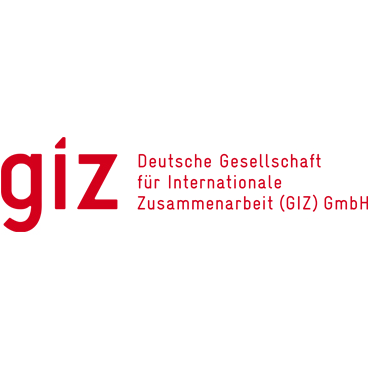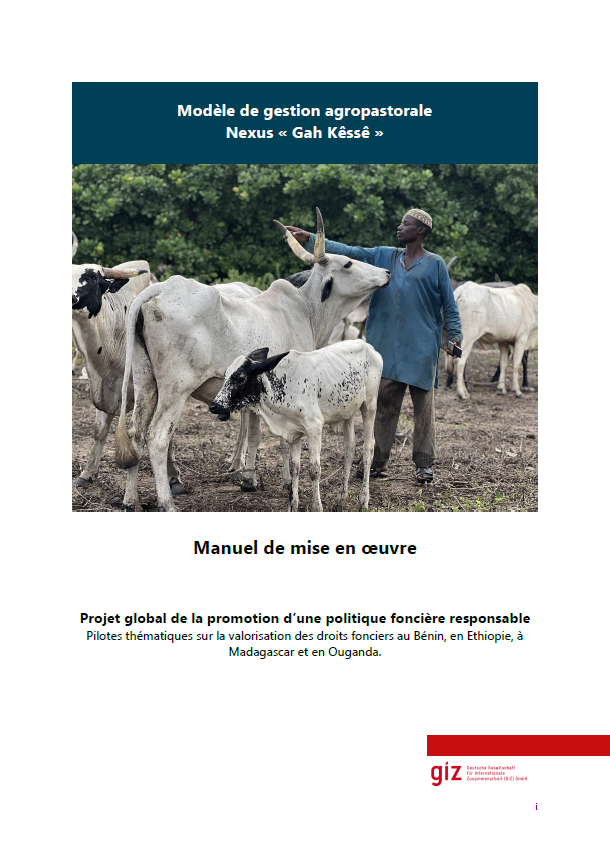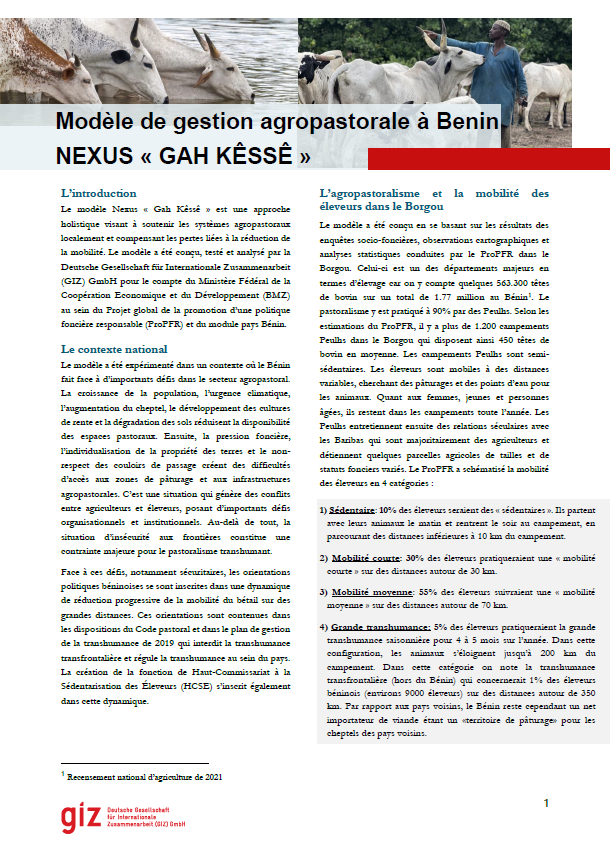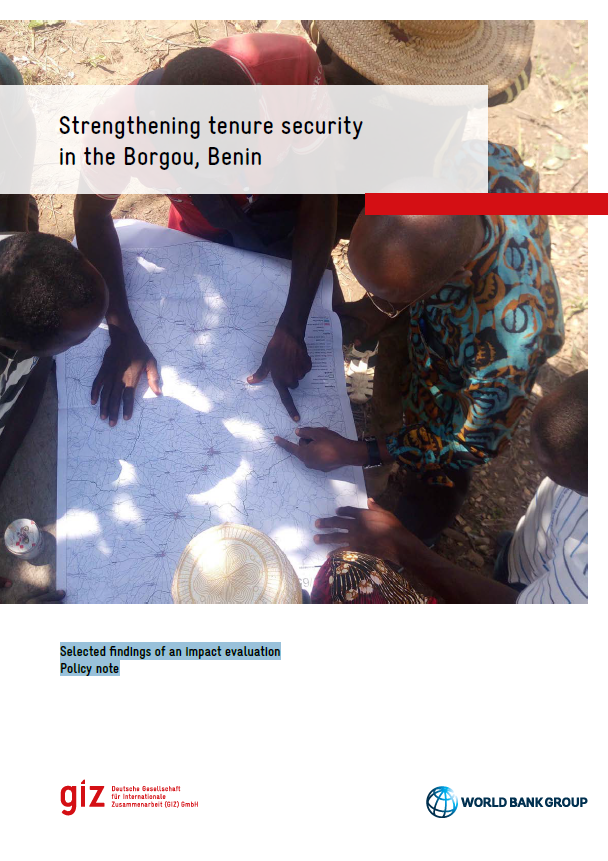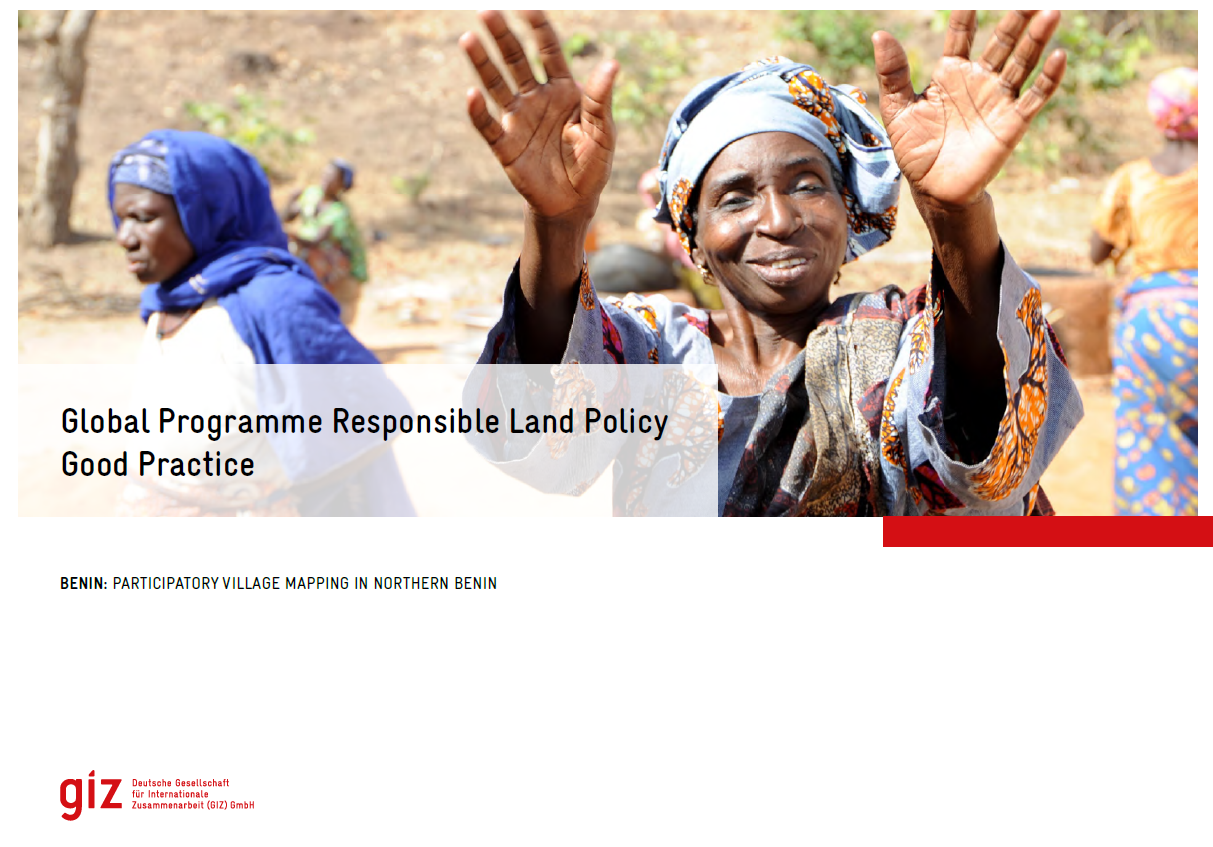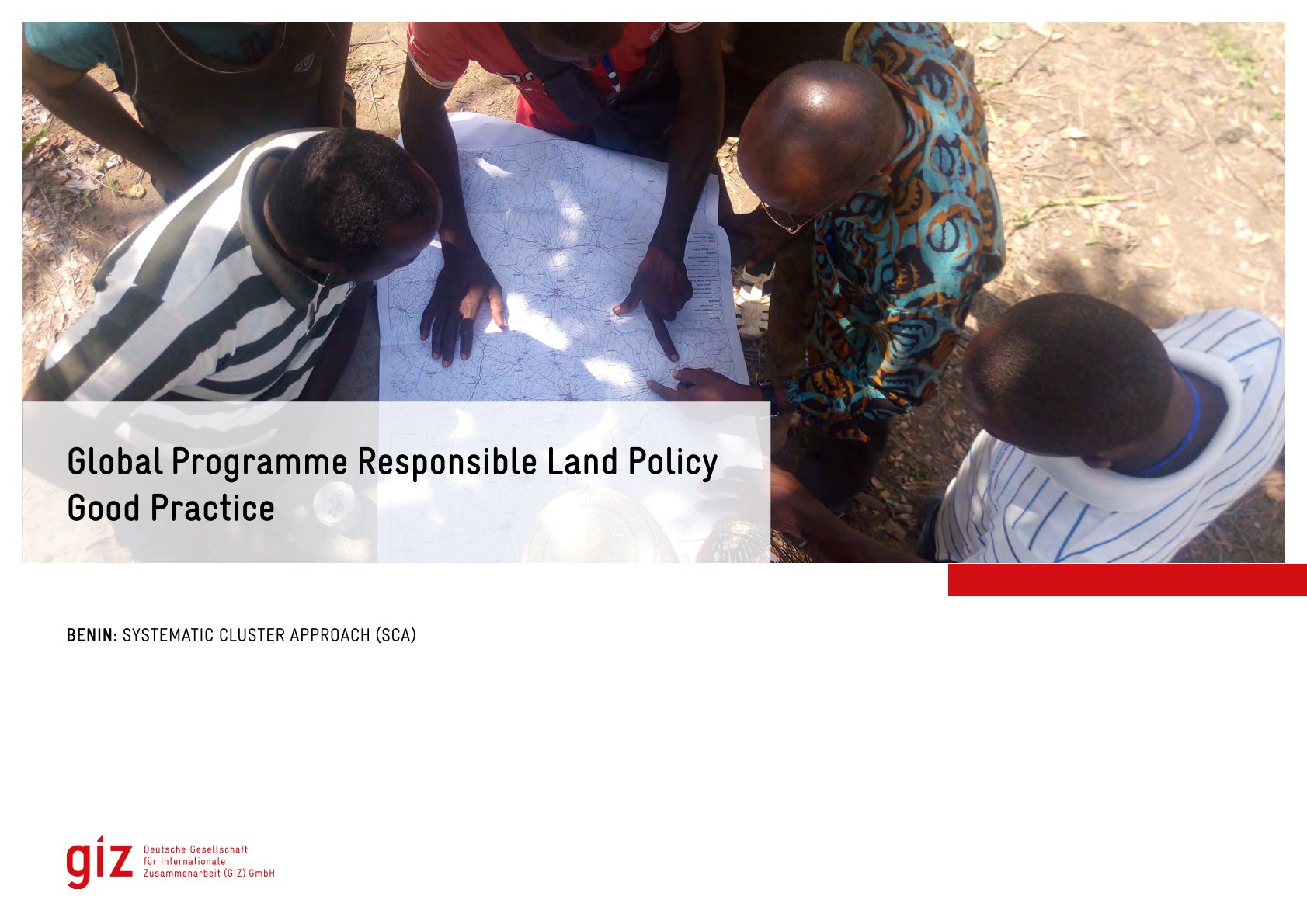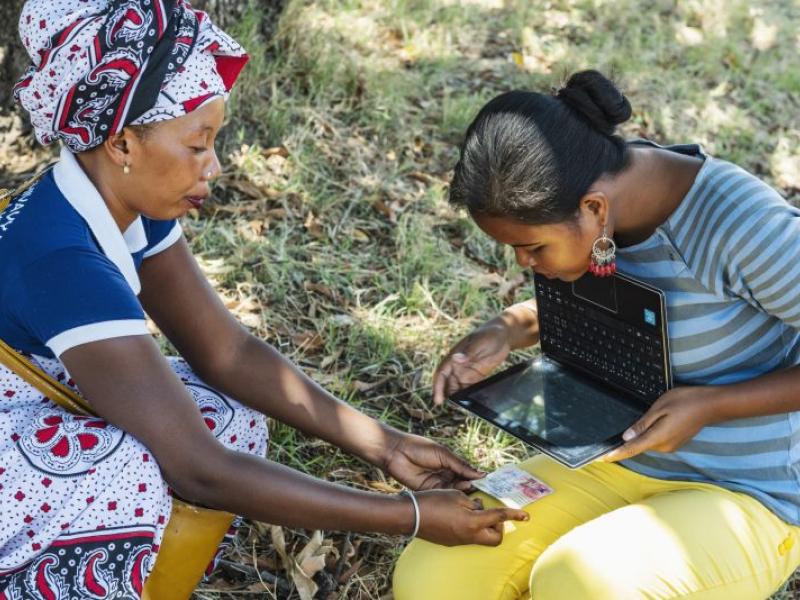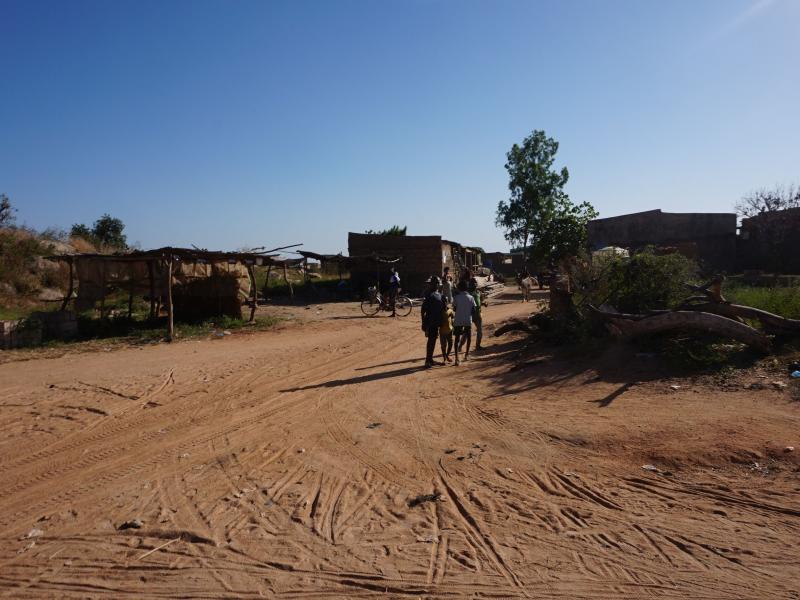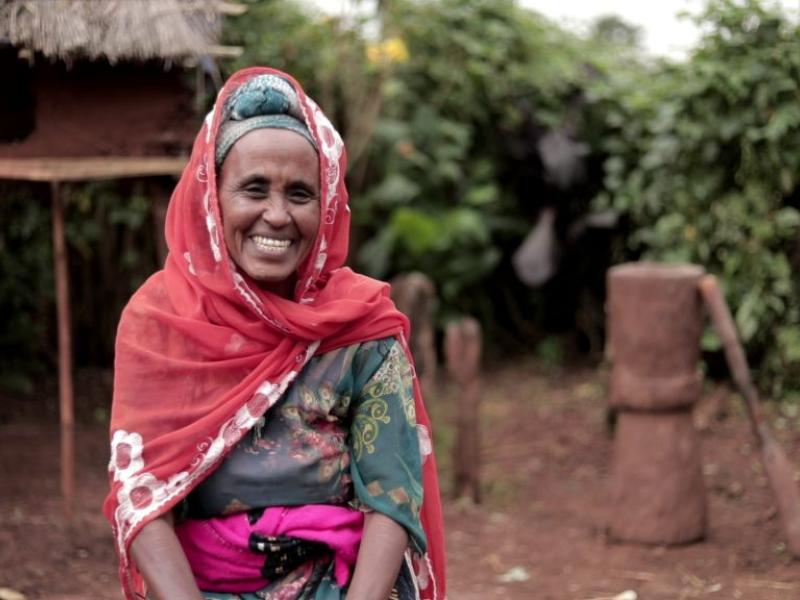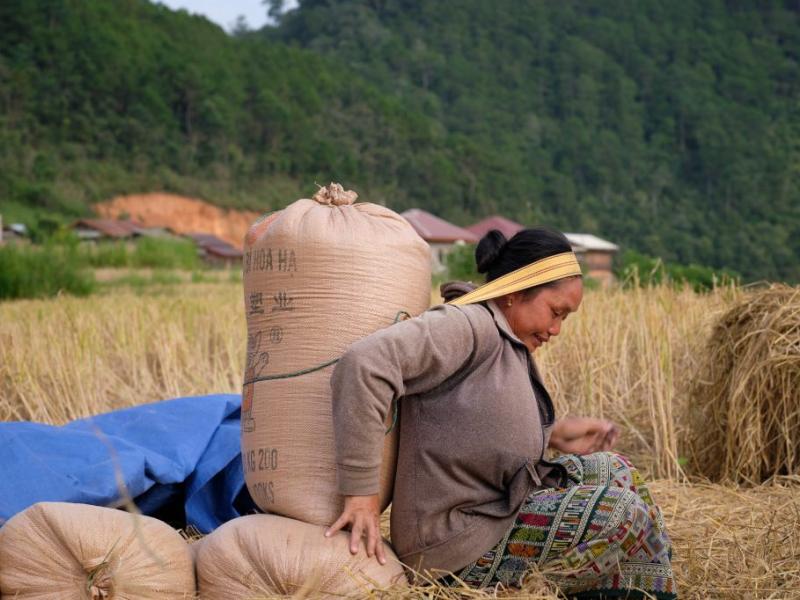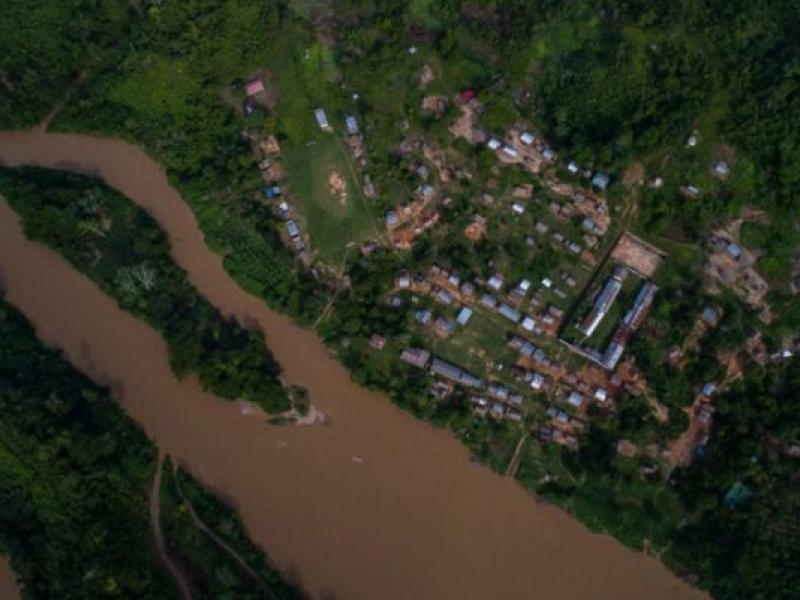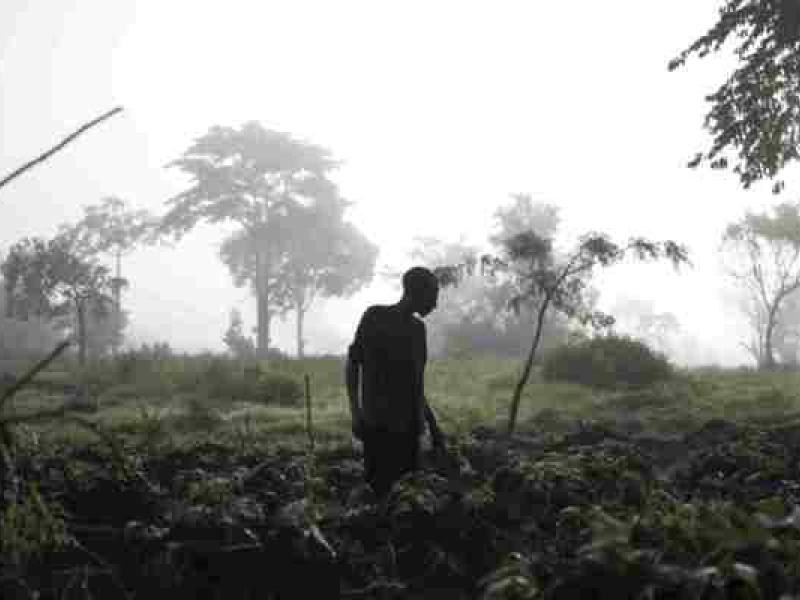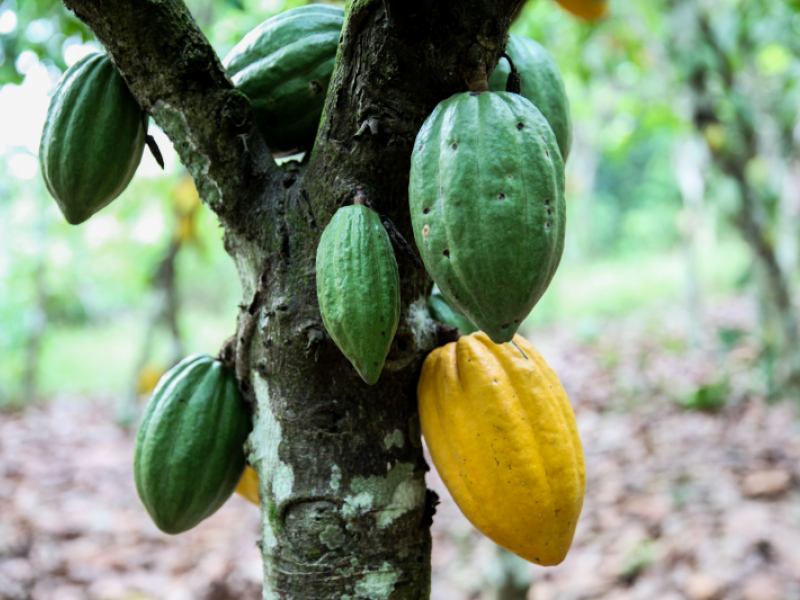Community / Land projects / Responsible Land Policy in Benin
Responsible Land Policy in Benin
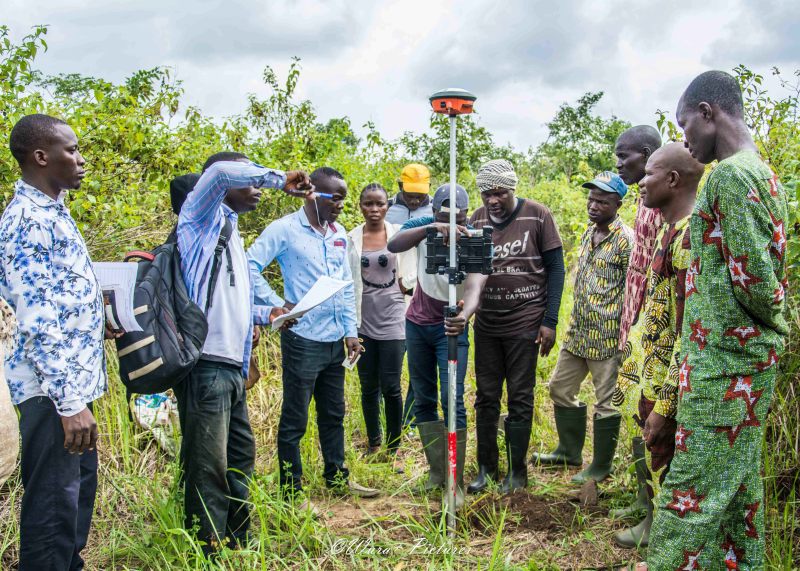
€9000000
06/16 - 07/23
Completed
Implementing Organisations
Donors
Data Providers
General
Benin has 12 million inhabitants (growing 2.8% yearly) and a population density of 105 inhabitants per km². A large part of the population – around 70% – earn their living from agriculture which accounts for one third of Benin’s Gross Domestic Product. Unfortunately, lack of knowledge of the land law hinders urgently needed investment in rural areas. Less than 2% of the farmed land is protected by land titles. And of those titles less than 1% are owned by women. The informal land use system is largely unable to cope with the growing pressure on agricultural land. Disputes between local smallholders and nomadic or settled pastoralists are very common. The challenges in Benin include the substantial disadvantage of women and marginalised groups, undocumented land transactions and land rights as well as a lack of knowledge of the law. At the same time, opportunities exist: the new land law of 2017 (fostering customary ownership rights), a proactive land policy and existing decentralized land services provide a basis for increasing land tenure security. The project uses these opportunities to improve the situation. Customary traditional rights are being formalised and the institutional framework is being strengthened to improve the chances of a fair and responsible land policy. Thereby, the project represents an important contribution to combating hunger and poverty in Benin.
Activities in Benin
The first field of activity aims to improve the institutional framework and processes for securing land use and ownership rights in the department of Borgou. In the second field of activity, the project aims to increase the involvement of civil society in formulating and implementing a responsible land policy. The third field of activity focuses on private agricultural investors and on raising their awareness of implementation of a responsible land policy as part of the G7 New Alliance initiative.
An example from the field
Benin passed legislation in 2017 to align the national land administration with international guidelines. The project supports the implementation by building both individual and institutional capacity. A core process is the recording of village residents land rights through either the rural land registry (Plan Foncier Rural, PFR) or through certificates of customary ownership (Attestation de Detention Coutumière, ADC). This is being achieved in cooperation with the National Agency for Domains and Land, as well as with local mayors, who are responsible for validating and signing the ADCs. Land rights are being registered, mapped and formalised, facilitating the issuing of official documents. After 4 years of implementation, the project succeeded in securing land rights for over 8,500 households. In 2016, only 1% of the titles belonged to women, whereas now, 28% of the titles are in the name of a female household member. More than 9,000 parcel plans (equalling a total of 140,000 ha) have been demarcated and registered.
The project also seeks agricultural investments to comply with international guidelines. In this regard, the project and its partners created a National Charter. The Charter is based on the Voluntary Guidelines on the Responsible Governance of Tenure by the Food and Agriculture Organisation of the United Nations and serves as a guideline for sensitization and commitment of all stakeholders.
Project structure and partners
Beside the two Ministries (MAEP - MEF), the project cooperates closely with non-state actors such as NGS and local authorities (e.g. intermunicipality of Borgou: ADECOB). Active synergies are developed with other German cooperation projects. Accompanying field research (with the World Bank) is carried out with a survey on the impact of the process in Borgou. Studies are also conducted in cooperation with the State University of Parakou.
Resources
Here on Landportal, the GPRLP shares its knowledge products, which come directly from the projects in the countries. These include good practices, impact stories, as well as manuals and guidebooks on topics like tenure security, dispute resolution and implementation strategies. You can find all our resources from Benin down below!


